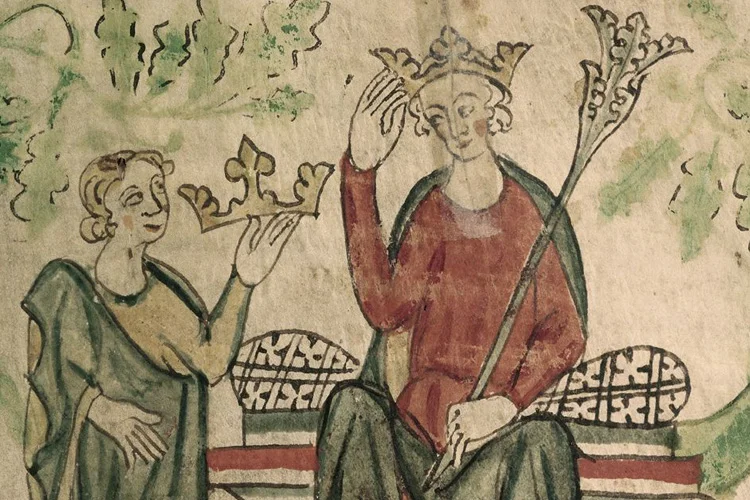
Titles are everywhere and they likely have existed since humans began forming groups larger than the individual family. Almost all societies in every part of the world have evolved titles of one form or another. The Europeans, however, have raised titles to a whole new level. Kings, queens, princes, dukes, duchesses, lords, ladies, barons, viscounts, the list is endless. It seems almost everyone in Europe has a title of one type or another.
The European fascination with titles followed the colonists to America. As an American elite arose, they too began to award themselves titles, from the political such as burgess to the religious such as deacon and to the title of master in the slavery system. Some southern planters liked to refer to themselves as “a simple farmer,” though they were far from simple and I doubt that any of them dirtied their hands in the fields. Also, they were also quite fond of the title squire.
Two of my favorite titles are from colonial New England. Elite men were referred to as Worthy, as in Worthy Jones. I wonder if common men were considered unworthy. Married women were referred as Goodwife, often shortened to Goodie.
From the beginning of the United States, we were involved in creating new titles. After the adoption of the constitution, titles, specifically a title for the new chief executive, took up a portion of the first meetings of Congress.
Vice President John Adams suggested the following titles: “His Elective Majesty”, “His Mightiness”, and even “His Highness, the President of the United States of America and the Protector of their Liberties”.
Adams, who might kindly be described as portly, was mockingly referred to as “His Rotundancy”. Fortunately for succeeding generations, Adams’s recommendations were ignored, and Mr. President became the accepted title.
The use of titles, real or imagined, seems to have become particularly widespread in the times of the Internet. We constantly receive emails that include the name of the sender followed by multiple titles, often in the form of abbreviations and strings of letters that we seldom understand. These are meant to add an air of importance to the message. Often, we are impressed without really understanding why.
Some titles are honorary such as those awarded by universities or other such honorary titles as Kentucky Colonel. Others are just for fun such as the title I recently received, Admiral of the Cherry River Navy, the world’s only navy where every member is an admiral.
Please don’t think that I am mocking or dismissing the importance of titles. It’s their misuse and overuse that concerns me. Professional titles have an important place in professional situations. They help establish the expertise and credentials of people who will be working together but may not know each other. In this professional situation they can also help to establish educational accomplishments, political or social authority, or even honorary positions.
I’ve heard the argument’ “I’ve worked hard for that title and I’m going to use it.” I have some sympathy for that position, particularly for someone newly graduated with an advanced degree. But in general, use of professional titles in a nonprofessional setting strikes me as bragging.
Like everyone else, I have a title. However, unless you are seeing me in a professional situation or we are in a situation where all people are expected to use their professional titles, you won’t see an MD after my name. Occasionally when I’m having my name listed in a program or on a group roster, I tell them not to add the title, and I’ll be asked why. My standard response is that it isn’t relevant to the group.
Occasionally I’ll be working on a committee or other group with another professional and invariably they will list all their credentials in all our correspondence. For example, recently I was working with a group completely unrelated to medicine that also included another physician. We are well known to each other and know each other’s credentials. I signed all my emails with a simple John. In his emails, his full name was always followed by MD, MPH, FAAP. I know all about the automatic signature block and use it in professional correspondence, but there is a time and a place for everything. Perhaps he thinks I forgotten who he is since we talked last week.
The Grumpy Doc, HSE, AKMU
For those who don’t recognize my newly self-awarded titles, they are His Serene Excellency, All Knowing Master of the Universe. I will expect appropriate deference from now on.

Wm. Leigh Shepherd
One of our clients called herself EOTU. Emperess of the Universe. Known and admired by all. Really Leigh